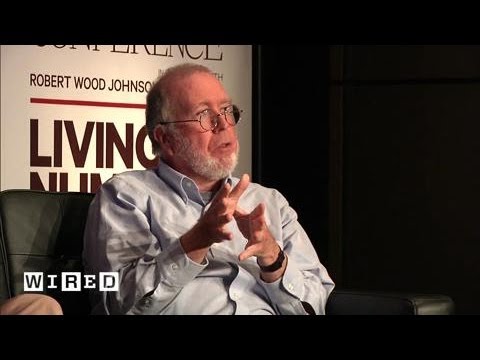The Science of Living in Space: NASA’s Study on Twins
Summary
NASA’s study on the impact of long-term space travel on human biology compared astronaut Scott Kelly, who spent almost a year on the International Space Station, with his identical twin brother, Mark Kelly, who was on Earth during that time. Dr. Francine Garrett-Bakelman, one of the study’s lead authors, discusses the research project’s unique aspects and its major findings on physiological parameters, molecular information, and cognitive function. The study shows that human biology can be maintained at the cellular level, and that telomere caps lengthened in space, which was unexpected. The study provides insight into the potential molecular mechanisms that might be impacted by space travel and therefore suggests direction for countermeasures to be considered.
Table of Contents
- The Study’s Unique Aspects
- High-Stakes Scenario Involved in the Study
- Major Findings of the Study
- Implications of the Study’s Findings
- Future Direction of the Study
The Study’s Unique Aspects
Q: What was the motivation behind conducting the study on twins?
A: NASA and Scott Kelly came up with the concept of the study to investigate the impact of long-term space travel on human biology, which had to include molecular information and other important parameters. The use of twins is rare due to their genetic similarities, making one an ideal control and reference compared to the other.
Q: What samples were collected during the study?
A: Biological samples such as blood and urine were collected from Scott Kelly while he was in space, and the same samples were collected from his brother Mark Kelly simultaneously on Earth.
High-Stakes Scenario Involved in the Study
Q: Can you describe personally one of the high-stakes scenarios you were involved in, concerning a high-priority sample you had to process?
A: Dr. Garrett-Bakelman recalls receiving two specimens at 2:30 in the morning from the Johnson Space Center. These specimens came from the space station right before Scott Kelly left and from him when he got to the center. She worked nonstop in the lab until 9 in the morning to ensure that she didn’t make any mistakes that could have affected the results. This was a unique, one-of-a-kind experience in science that Dr. Garrett-Bakelman found memorable.
Major Findings of the Study
Q: What were the significant findings of the study?
A: Some significant findings revealed the maintenance of human biology at the cellular level, longer telomere caps in space, unexpected telomere lengthening, and gene changes in stress response and inflammation. Gene expression changed in correlation with the time Scott Kelly spent in space, but the majority of them returned to the preflight baseline after six months’ time.
Q: Can you explain what telomeres are and their role in the study?
A: Telomeres are the caps of chromosomes that protect genetic material from damage. Unexpectedly, the telomere caps of the chromosomes got longer in space, and this has implications for protective measures when sending people to space.
Implications of the Study’s Findings
Q: What do these findings mean for longer-duration space missions, such as a mission to Mars?
A: The study gives some direction on the areas of molecular biology that should be focused on further and should be studied in additional astronauts. The study provides insight into the potential molecular mechanisms that might be affected by space travel and therefore suggests direction for countermeasures to be considered.
Future Direction of the Study
Q: What are the next steps in the study?
A: Reproducing the study in additional astronauts who will be on the International Space Station for a year as the first step, and the same studies have to be repeated as space agencies start traveling further out to see if these things are reproducible.
Conclusion
NASA’s study on the impact of long-term space travel on human biology compared the health of identical twin astronaut Scott Kelly, who spent almost a year on the International Space Station, with that of his identical twin brother, Mark. The study provided important insights into the potential molecular mechanisms that might be impacted by space travel, including the maintenance of human biology at the cellular level, unexpected telomere lengthening, gene changes in stress response and inflammation, and longer telomere caps in space. These insights suggest direction for countermeasures to be considered, as we advance deeper into space exploration.





